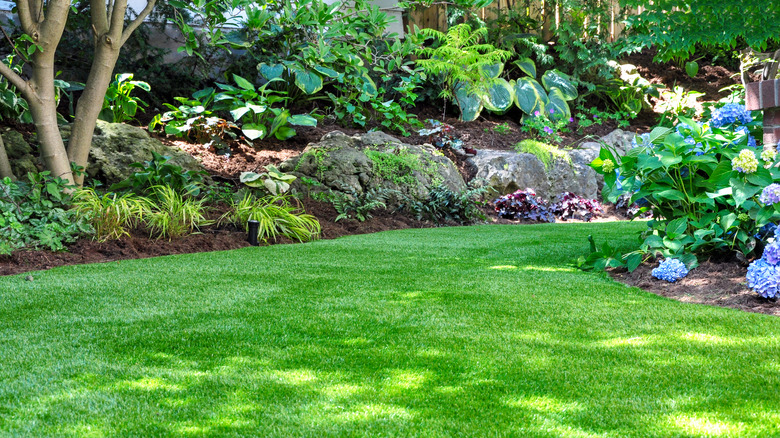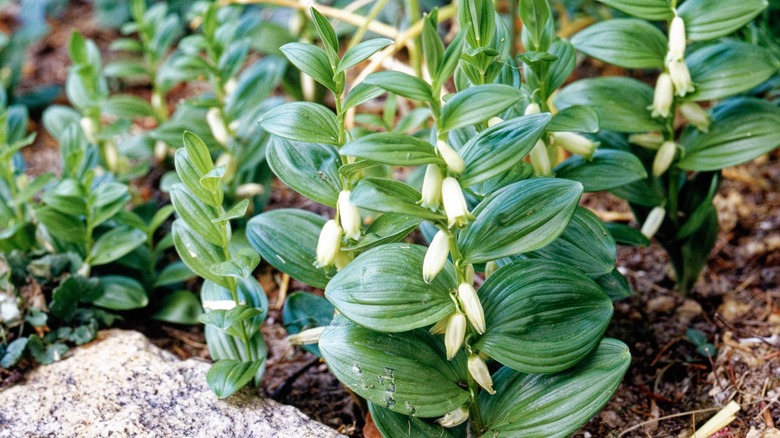The Dwarf Ground Cover That Shows Off Bluish Berries & Bell-Shaped Flowers
Are you looking for an easy-care, attractive ground cover that will produce flowers and berries to add some interest and vibrancy to your wooded garden? If this is the case, look no further than dwarf Solomon's seal (Polygonatum humile). This pretty plant has lovely deep-veined green ovate leaves, dainty greenish-white bell-shaped flowers from May to June, and bluish berries that are adored by birds (you should be aware, though, that these berries are mildly toxic to humans). Better yet, dwarf Solomon's seal is perfect for woodland gardens because it thrives in shade-filled areas with moist organically-rich soils, and spreads via underground rhizomes. In fact, it's one of a number of recommended ground cover plants that love shade.
Dwarf Solomon's seal is native to Japan, but can also be found growing in other Asian countries such as northeast China, Korea, and eastern Siberia. It can be grown in USDA hardiness zones 5 through 8, and only reaches a maximum height of around 12 inches. This means that it's ideal for planting under trees and taller shrubs to add some depth and lushness to your garden.
How to grow dwarf solomon's seal in your garden
Ideally, you want to plant dwarf Solomon's seal in a shady or partly shaded spot in your garden, although it can tolerate a little morning or late afternoon sun. Most importantly, the soil should be rich in humus or organic matter and kept moist. This plant can even handle soils that are wet occasionally. In saying that, as this is a dwarf cultivar, it can tolerate slightly drier conditions than some of the larger growing Polygonatum species. But covering the soil with leaf litter will help to keep the moisture in, and also provide the plant with additional nutrients.
One problem that you might encounter when growing this plant in your garden is that snails and slugs do tend to enjoy munching on those lovely green leaves. To keep your plants safe, either scatter wildlife and pet-friendly slug pellets around them, or follow tips for keeping snails and slugs out of your garden, such as sprinkling diatomaceous earth or coffee grounds over the soil, or installing some beer traps nearby. Once you have dwarf Solomon's seal growing in your yard, it's not that difficult to dig up some of the plants that have spread and grow them elsewhere in the garden. To add even more interest to your woodland garden, you might like to consider adding other easy-to-grow ground cover plants that thrive around tree roots.

